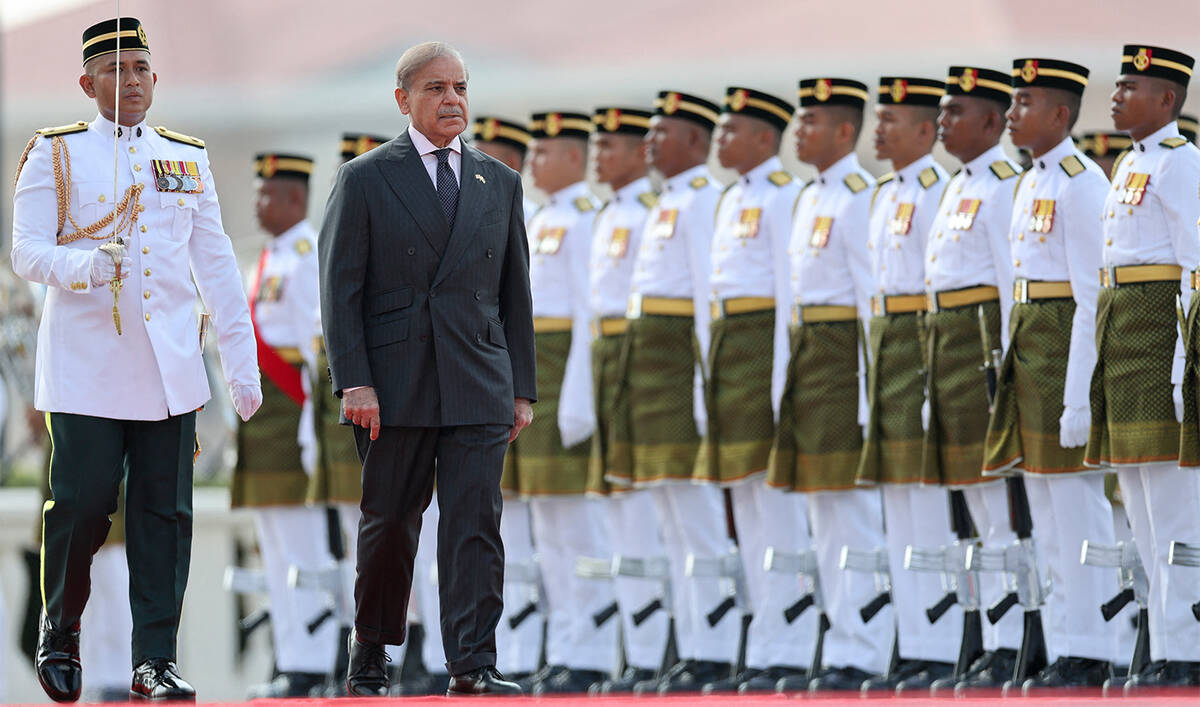ISLAMABAD: Pakistan on Friday condemned what it called Israel’s “unjustified and illegitimate aggression” against Iran after strikes targeted nuclear facilities, ballistic missile factories and military commanders as part of an operation to prevent Tehran from building an atomic weapon.
Israel launched strikes on Iran early Friday, with black smoke rising from around its main nuclear enrichment facility. Iran’s elite Revolutionary Guards corps said its top commander, Hossein Salami, was killed and state media reported the unit’s headquarters in Tehran had been hit. Several children had been killed in a strike on a residential area in the capital, it said.
The International Atomic Energy Agency said on Friday there was no increase in radiation levels at the Natanz nuclear site, citing information given by Iranian authorities.
Israeli military spokesman Brig. Gen. Effie Defrin said 200 Israeli fighter jets took part in the strikes, hitting more than 100 targets in Iran, which had launched about 100 drones toward Israeli territory in retaliation.
“Pakistan strongly condemns the unjustified and illegitimate aggression by Israel against the Islamic Republic of Iran,” the Pakistani foreign office said in a statement, warning that the escalation posed “a serious threat to regional peace and security.”
The foreign ministry said Israel had violated Iran’s sovereignty and said the attacks were “contrary to the UN Charter and fundamental principles of international law.”
“Iran has the right to self-defense under Article 51 of the UN Charter,” the statement added.
Pakistan’s Deputy Prime Minister and Foreign Minister Ishaq Dar described the Israeli strikes as a “brazen violation” of Iran’s sovereignty and said they “gravely undermine regional stability and international security.”
“Pakistan stands in solidarity with the government and the people of Iran,” Dar wrote on X.
Dar also said the embassy had set up a 24/7 Crisis Management Unit at the foreign ministry “to ensure safety & security of our nationals / pilgrims in Iran.”
Pakistani Prime Minister Shehbaz Sharif called on the international community and the United Nations to “take urgent steps to prevent any further escalation that could imperil regional and global peace.”
Israeli military spokesperson Defrin said all air defense systems had been activated in response to Iran’s retaliation and the country expected “difficult hours ahead.”
In Washington, the US administration said it was not involved in the Israeli operation, which raises the risk of a fresh escalation in tensions in the Middle East, a major oil producing region.
“Israel took unilateral action against Iran,” US Secretary of State Marco Rubio said in a statement released by the White House. “Our top priority is protecting American forces in the region.”
∫£Ω«÷±≤•‚Äôs foreign ministry also condemned the Israeli strikes.
“The Kingdom condemns these heinous attacks and affirms that the international community and the Security Council bear a great responsibility to immediately halt this aggression,” the Saudi statement said.
Airlines cleared out of the airspace over Israel, Iran and Iraq and Jordan on Friday after the Israelis strikes, Flightradar24 data showed, with carriers scrambling to divert and cancel flights to keep passengers and crew safe.
Iran closed its airspace and Tel Aviv’s Ben Gurion Airport was closed until further notice.
Israeli military Chief of Staff Eyal Zamir said tens of thousands of soldiers had been called up and “prepared across all borders.”
“We are amidst a historic campaign unlike any other. This is a critical operation to prevent an existential threat, by an enemy who is intent on destroying us,” he said.
With inputs from AP and Reuters



















